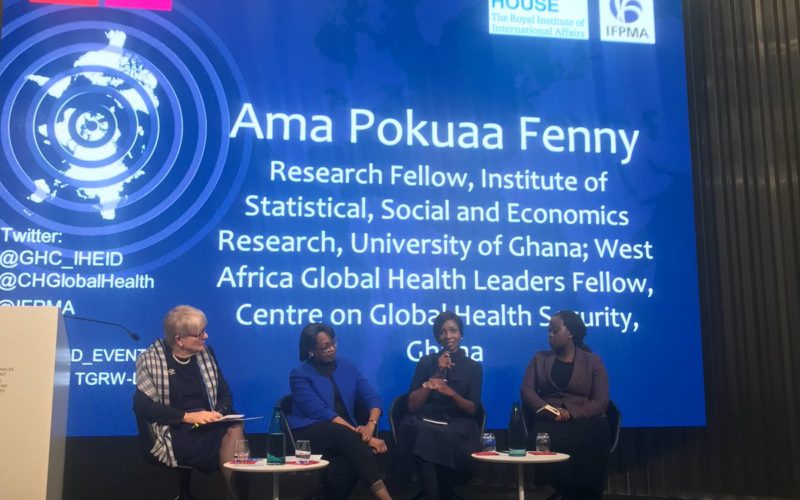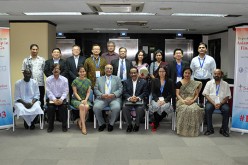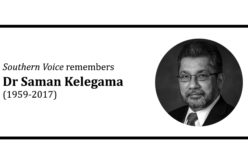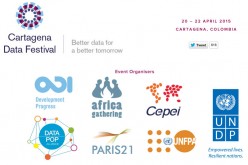by Ama Pokuaa Fenny, PhD and ISSER Research Fellow, University of Ghana.
Health research needs to include partnerships across different sectors and involve diverse stakeholders. Only then will it have real impact.
In early May, the government of the Democratic Republic of Congo declared a new outbreak of the Ebola Virus Disease (EVD) in Bikoro. Laboratory results confirmed two cases of EVD. In order to avoid pandemics like in the case of Ebola, global health research and access to it are essential. It provides the evidence needed for appropriate public health action, timely policies and planning. Unfortunately, especially in developing countries, quality health information is missing. This makes it difficult to judge past successes or failures in this field of work and to adjust accordingly.
Discussions around key topics in global health need to be grounded in solid research. This has not been possible in some parts of the world, like for example in Africa. The lack of health workers in this region is a problem yet to be resolved. Staff shortage, plus an uneven geographic distribution of health professionals leads to lack of evidenced-based policies. These are desperately needed in order to achieve the UN Sustainable Development Goal (SDG) 3 (“ensure healthy lives and promote well-being for all at all ages”). But so far, efforts to motivate medical students to work in rural areas have failed.
Global health research is key to building strong health systems. These are needed to combat health threats that know no national borders, like in the case of Ebola. The world is moving towards a more integrative agenda on achieving universal healthcare. Health programs now involve not only key players in the health sector, but also other sectors, such as transport, education and environment. It is therefore imperative that the same happens with global health research.
Another important reason to advocate for cutting-edge, affordable and accessible research is that healthcare costs are increasing worldwide. Population growth, especially in developing countries, rising labour costs and the use of expensive technology means health spending will continue to increase. This fact calls for collaboration and partnership between researchers in both developing and developed countries. Also efforts to use health care resources more efficiently and investing in technologies to reduce costs should be considered.
So how can key partners work together in global health research? What kind of regional partnerships can deliver these solutions – south-south or north-south?
To date, some partnerships working on these issues do already exist. Institutions and universities have done capacity building and exchanged ideas within different economic and social structures, as well as policy environments. A few collaborations have even provided ground breaking solutions. One such example is the “Human Resources for Health” – program to support medical education in Rwanda. It was recently launched by the Rwandan Ministry of Health, the US Government an 25 top American medical institutions. This program builds on the expertise of U.S.-based academics. Over the next eight years, together, they will build the cadre of health professionals Rwanda needs to serve its’ population healthcare needs. Other similar alliances did not succeed, e.g. if the partnership was too unequal. Hence, capacity building and impact were minimal.
For global health research to contribute to the success of SDG 3, I recommend the following:
- include health workers in the discussions on how to get health programs to be operational. Too often they are marginalised at the policy design and conceptual stages.
- involve non-healthcare professionals, e.g. academia, governmental and nongovernmental organizations, parliamentarians, business representatives, and the wider community as well.
- train and equip future researchers with the right skills to deliver the solutions to current health problems.
- bring researchers from different disciplines together to ensure that specific population groups are targeted with the right interventions.
- avoid unequal partnerships by providing all collaborators with the necessary skill-set to ensure the sustainability of health programs.
The more collaboration and information exchange on health research, the better governments and healthcare professionals will be able to manage outbreaks like the Ebola one. Even better, they might be able to avoid them altogether.
Ama Pokuaa Fenny is a Research Fellow with the Institute of Statistical, Social and Economics Research (ISSER), at the University of Ghana. ISSER is a member organisation of the Southern Voice network. She is also a former Fellow of the Centre for Global Health Security at the Royal Institute for International Affairs (Chatham House), UK. Her research with the centre focused on how poor communities in Sub Saharan African countries could be integrated into social health insurance programs. She has a PhD in Health Economics from the Department of Public Health, Aarhus University, Denmark; MSc in Health, Population & Society from the London School of Economics & Political Science (UK).
3,132 total views, 2 views today









